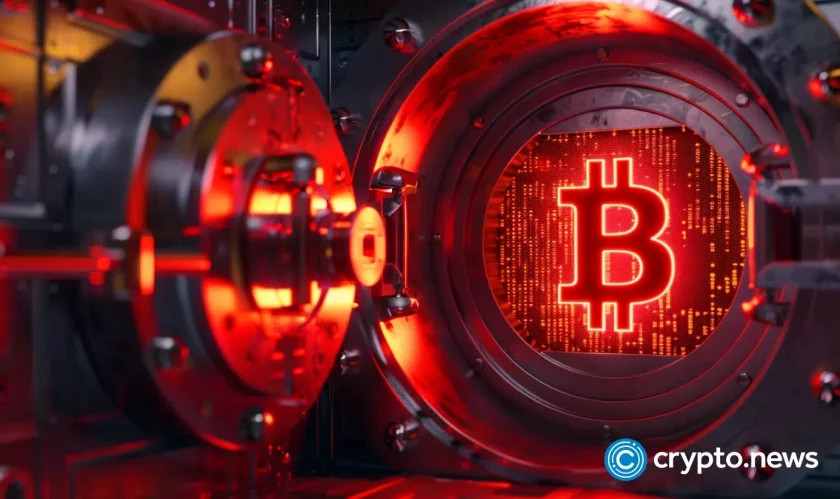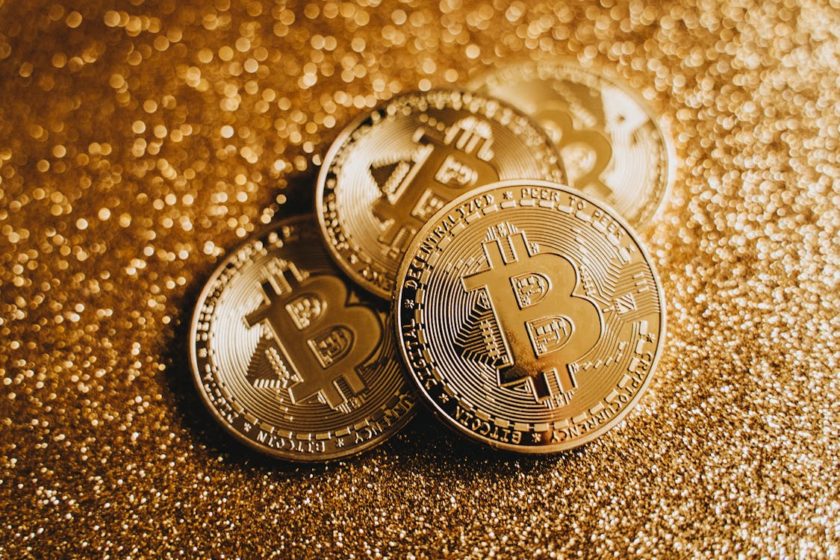Recent news that “Russia will buy $10 billion in Bitcoin and ditch the U.S. dollar” is backed by the publications such as The Telegraph, Bitcoinist, Daily Hodl and even The Fortune. However it seems that they all took the bait.
Be it as it may, on January 6th, economist Vladislav Ginko, who works at the state-funded Russian Presidential Academy of National Economy and Public Administration, posted to Twitter that he believes Russia has no choice besides Bitcoin as a hedge against economic losses taken as a result of the US sanctions against Russia.
Australian crypto news website micky.com claimed to have spoken with Ginko who allegedly said:
“US sanctions may be mitigated only through Bitcoin use. I believe that the Russian government will start diversifying its reserves with Bitcoin in February this year when US Congress will introduce… new sanctions against Russia.”
He also reportedly estimated that the first wave of Russian investment in crypto could begin as early as February and could be worth billions and thinks the investment will come from both the state and private sector.
Chris, I believe sitting here in Moscow, Russia, that the real factor of Bitcoin apotion will be when Russian government I’m working for will start investing almost $470 billion reserves into Bitcoins. I expect that it’ll be at least $10 billion in the first quarter of this year.
— Vladislav Ginko (@martik) January 6, 2019
So, logically (or not) some of main media including Fortune and The Daily Telegraph took the bait confirming “for sure” that Russia is buying $10 billion in Bitcoin surfaced. Allegedly, that work was “underway” to transfer deposits in U.S. Treasuries to BTC.
The Daily Telegraph even published the comment from Mati Greenspan, senior market analyst at trading platform eToro who said that he understands that there is “definitely an interest from the [Russian] government to do this”.
He added:
“The proposal that I understand is on the desk of the finance minister at the moment is to create some sort of intermediary cryptocurrency.”
This isn’t the first time Ginko has made claims that Russia is moving into crypto. He made the same claims of Russia moving billions from U.S. Treasuries to Bitcoin already in August, and in July, he said that Russia would move to a “cryptorouble”.
Also, do not forget, that’s the same person who wrote bizarre tweets like the following, where he claims convicted Ponzi scheme operator Bernie Madoff is the true Satoshi Nakamoto:
However, to every media it can happen to not intentionally, publish fake news, especially when it’s all written in a language you’re not familiar with. However, what makes this story more “Hollywood-ish” is that legitimate media as Forbes, Fortune or The Daily Telegraph went on publishing the same story without any further check. From there, Bitcoinist.com published a story based on the same sources.
Even though the idea of relocating some of the money to digital assets might sound logical, especially considering the recent Kremlin focus on technology development and innovations, but its realization is highly unlikely.
Duma: The Proposed Scenario Has No Sense
According to the Head of Duma’s Interagency Task Force for Cryptocurrencies Elina Sidorenko, the proposed scenario is hardly possible at this stage.
She claims:
“This statement has no sense, and no touch with the ideas that might have been discussed by the governmental structures”, – he said in the interview with the cryptocurrency-focused media outlet Forklog. “The Russian Federation, just like any other country, is not ready to merge cryptocurrencies with the traditional financial system. This idea is out of the question for at least 30 years.”
What is true, is that Russian lawmakers have, in December last year, revised another bill regarding the regulation of the industry built around cryptocurrencies. In its latest version, the draft law on crowdfunding sets the maximum amount of money ordinary Russians will be permitted to invest in projects such as ICOs at less than $9,000 per year.
According to the revamped draft law, private individuals will be allowed to invest through crowdfunding platforms up to 600,000 Russian rubles (less than $9,000) per year only, and a maximum of 100,000 rubles (~$1,500) per project RBC reported, quoting a copy of the document.
Any investment exceeding 600,000 rubles, made by qualified investors or financial institutions, will be subject to mandatory oversight by the country’s financial watchdog, Rosfinmonitoring, in order to prevent money laundering.
Professional investors will not be restricted in their participation in crowdfunding projects. Private individuals can be treated as “qualified investors” provided they meet certain criteria detailed in the federal law “On the securities market.” For example, they must control assets worth at least 6 million rubles (almost $90,000) and prove they have been employed in the securities industry for at least two years.
For Russia that is trying for de-dollarization, there are alternatives. After all, a means of exchange outside the dominating dollar corridor is in demand, especially as faith and trust in the fair impartiality of America as both open trade policy and vaunted global values fade away.
Over these very recent years, cryptocurrencies, which are powered by blockchain, are making measurable inroads in global finance, and particularly in the foreign exchange (FX) industry. They are still wildly volatile, not fully understood by the financial or public mainstream, and yet are consistently expanding with their market presence increasingly apparent.
However, it would be not professional to even think that Russia would evem consider spending 10 billions from budget only on Bitcoin.




